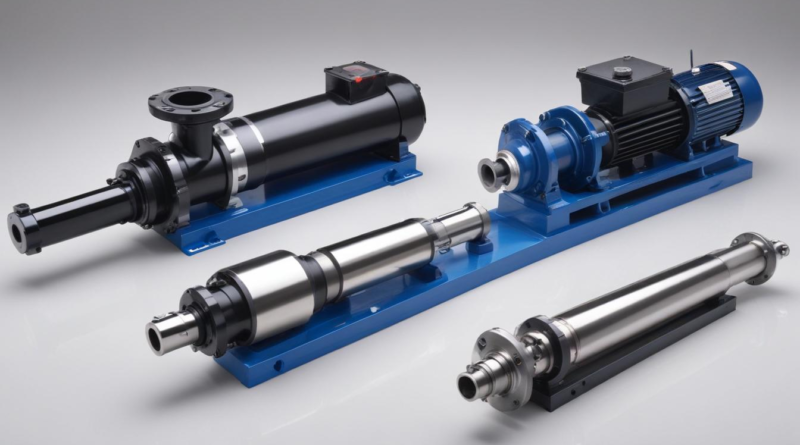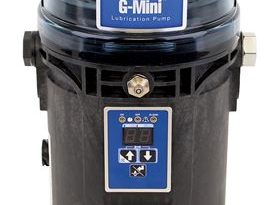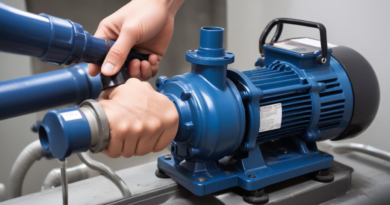Progressive cavity pumps for food and beverage applications
Progressive cavity pumps represent a pivotal advancement in pumping technology, specifically tailored for the food industry. This type of pump operates using a unique mechanism where a rotor turns within a stator, creating a series of small, sealed cavities that transport fluids efficiently. The design of progressive cavity pumps allows for a steady flow rate, regardless of the viscosity of the product being pumped, making them exceptionally versatile for various applications.
In the food and beverage sector, the ability to handle solids, slurries, and viscous materials positions these pumps as an ideal choice for numerous processes. They excel in delivering products like purees, pastes, and even chunky mixtures without damaging the integrity of the food. Furthermore, the consistent flow characteristics ensure that the applications remain stable, reducing the risks associated with inconsistent product quality.
Key features of progressive cavity pumps include:
- Low shear rates: Gentle handling of sensitive products minimizes damage.
- Self-priming capability: Eliminates the need for additional equipment to create suction.
- Wide range of viscosities: Efficiently pumps everything from water to thick sauces.
- Durability: Designed to withstand the demanding environments of food processing facilities.
Understanding the operational principles of progressive cavity pumps and their suitability for different fluids is crucial for professionals in the food industry. This knowledge can lead to optimized processing times, enhanced product quality, and improved overall system performance.
Applications in food processing
Progressive cavity pumps have gained significant traction in the food industry, thanks to their ability to manage a variety of applications effectively. These pumps are particularly suited for handling viscous and non-viscous fluids, making them an essential asset in numerous food processing operations. Consider the following applications where progressive cavity pumps excel:
- Food and Beverage Manufacturing: These pumps facilitate the transfer of liquid ingredients, such as oils, syrups, and flavoring agents, ensuring a consistent and uniform product mix.
- Dairy Processing: In the dairy sector, progressive cavity pumps are employed to handle products like cream, yogurt, and cheese. Their low shear operation minimizes the risk of separating delicate components, thus preserving product quality.
- Sauce and Dressing Production: The ability to pump thick sauces and dressings without compromising texture is crucial. Progressive cavity pumps maintain homogeneity during the mixing and transferring processes.
- Meat and Poultry Processing: These pumps are adept at moving emulsified products such as sausages or pâté, handling large solids with ease while ensuring a smooth flow.
- Brewery Operations: During the brewing process, progressive cavity pumps are utilized for transferring mash and wort, as they provide the necessary flow control without introducing air.
The versatility of progressive cavity pumps extends beyond just transfer operations. They also play a vital role in food processing applications such as:
- Pumping heavy slurries: Ideal for handling waste material or by-products.
- Filling and bottling: Accurate metering of ingredients for filling containers ensures consistency across batches.
- Ingredient injection: Precise control allows for the addition of spices or preservatives at various stages of production.
These diverse applications demonstrate how progressive cavity pumps are integral to achieving operational efficiency and maintaining high-quality standards in the food industry. Their robust design, efficiency, and adaptability make them a preferred choice among food processing professionals seeking reliable performance in challenging environments.
Benefits of progressive cavity pumps
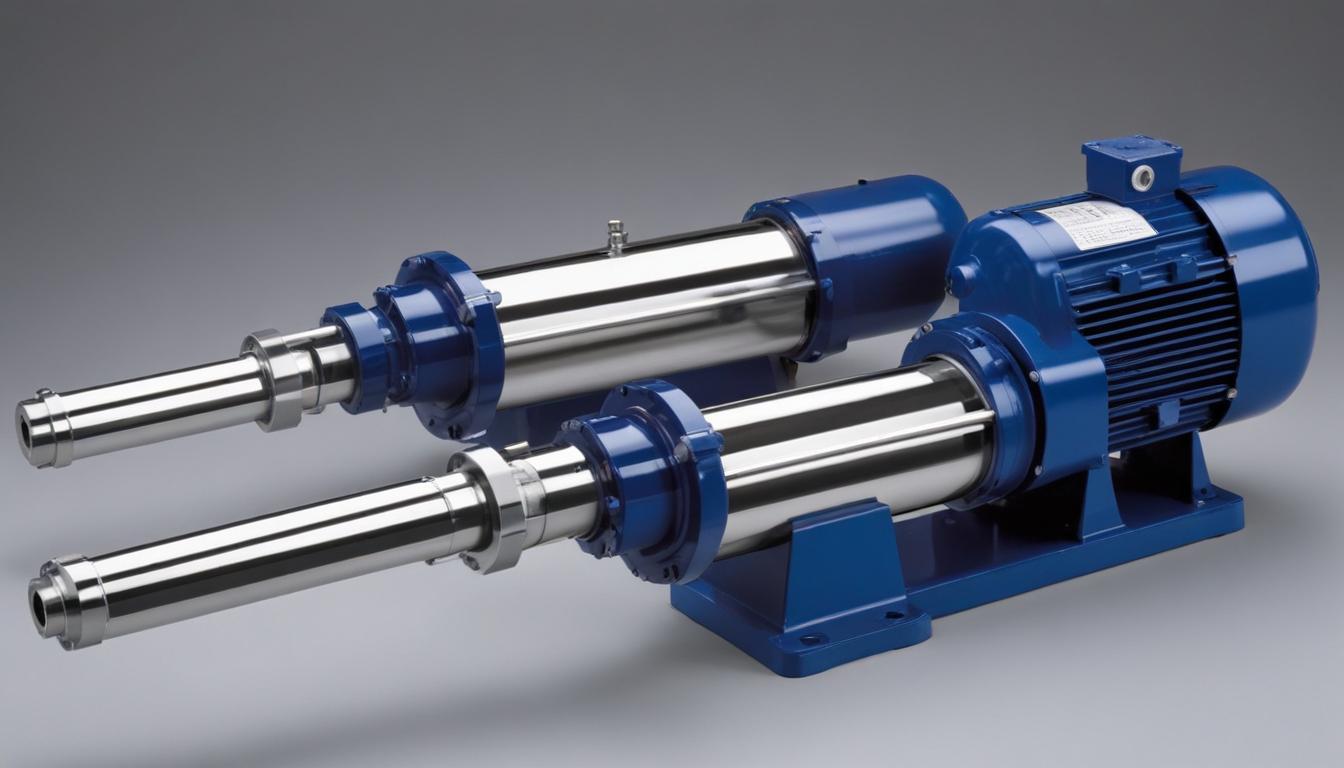
The adoption of progressive cavity pumps in the food industry brings forth numerous benefits that cater to the specific requirements of food processing applications. One of the primary advantages is their exceptional ability to handle a broad spectrum of viscosities. This characteristic enables these pumps to manage everything from thin liquids to highly viscous substances, making them indispensable in diverse food manufacturing scenarios.
Another significant benefit is the gentle handling of products. The low shear rates associated with progressive cavity pumps help retain the quality and consistency of sensitive food items. This is particularly important in processes involving delicate ingredients like yogurt, dressings, and emulsions, where excessive mechanical stress could alter the product characteristics adversely.
Additionally, the design of these pumps contributes to sanitation and hygienic operation. Made with materials that comply with food safety standards, progressive cavity pumps can be easily cleaned and maintained, reducing the risk of contamination and ensuring compliance with regulatory requirements. This sanitation capability is essential in the food industry, where hygiene is paramount.
The durability and reliability of progressive cavity pumps are also noteworthy advantages. Built to withstand the demands of rigorous food production environments, these pumps exhibit longevity and consistent performance, reducing downtime and maintenance costs. Furthermore, their self-priming capability simplifies installation and operation, as it eliminates the need for auxiliary equipment.
Moreover, when it comes to energy efficiency, progressive cavity pumps stand out by offering low energy consumption relative to the flow they deliver. This efficiency not only results in cost savings but also aligns with the growing emphasis on sustainable practices within the food industry.
The benefits of utilizing progressive cavity pumps in food processing applications are multifaceted. They facilitate an optimized production workflow, preserve product quality through gentle handling and low shear operations, ensure compliance with safety standards, and contribute to energy efficient processes. As the food industry continues to evolve, the role of these pumps will likely expand, proving invaluable in meeting the increasing demands for efficiency and quality.
Maintenance and troubleshooting
Maintaining the optimal functionality of progressive cavity pumps is crucial for ensuring uninterrupted operation in the food industry. Regular maintenance not only extends the service life of the pumps but also ensures consistent product quality and adherence to safety standards. Key maintenance practices include routine inspections, monitoring for wear and tear, and proper lubrication.
Common troubleshooting procedures should include the following:
- Leak Inspection: Regularly check for leaks around the pump’s seals and connections. Addressing leaks promptly can prevent product loss and contamination.
- Flow Rate Monitoring: Continuously monitor the flow rates. A sudden drop in flow may indicate blockage, wear, or malfunction of the pump.
- Vibrations and Noise Assessment: Unusual vibrations or noise can signify mechanical issues or misalignment. Immediate investigation is necessary to prevent pump failure.
- Power Supply Check: Ensure the pump’s power supply is stable and within operational specifications, as voltage fluctuations can impact performance.
Furthermore, understanding common operational issues can aid in early detection and resolution:
- Reduced performance: This may arise from factors such as pump wear, filter blockage, or air entrapment. Regular inspection can help identify root causes.
- Temperature variations: Abnormally high temperatures can indicate insufficient lubrication or excessive viscosity of the fluid being pumped. Monitoring temperature can prevent further damage.
- Contaminated product: This could stem from a lack of proper sanitation during maintenance. Regular cleaning and adherence to hygiene protocols can mitigate this risk.
An effective maintenance schedule should include:
- Weekly checks for leaks and visual inspections.
- Monthly lubrication of moving parts and recalibration of flow measurements.
- Quarterly comprehensive assessments of rotor and stator wear.
- Annual overhauls to inspect the pump’s internal components thoroughly and to replace parts as necessary.
By implementing a robust maintenance and troubleshooting plan, operators can significantly improve the performance and reliability of progressive cavity pumps. Early intervention in the maintenance process not only enhances productivity but ensures that the equipment meets the stringent regulatory compliance and safety standards expected in the food industry.
Regulatory compliance and safety standards
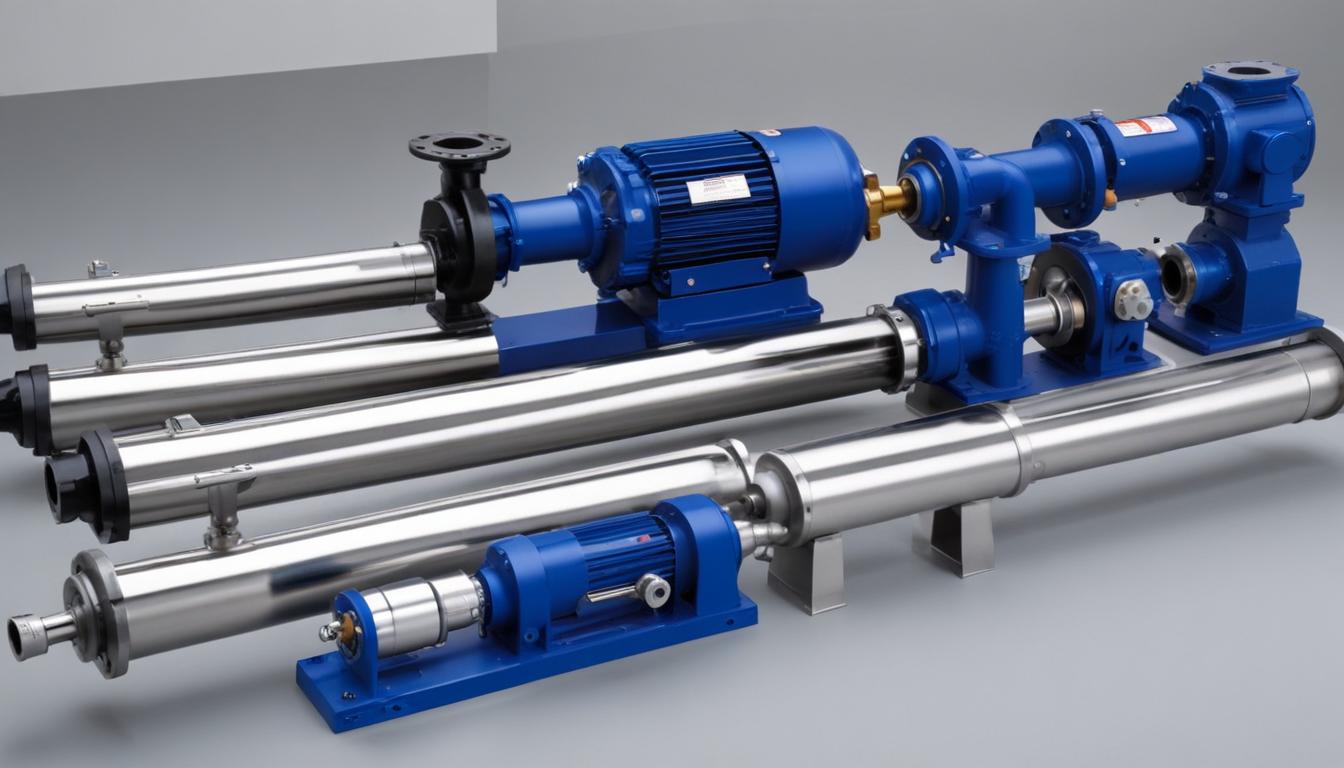
Regulatory compliance is a critical aspect when it comes to the use of progressive cavity pumps in the food industry. These pumps must adhere to various safety standards and regulations to ensure that the processes they facilitate do not compromise the quality and safety of food products. Regulatory bodies such as the Food and Drug Administration (FDA) and the United States Department of Agriculture (USDA) set stringent guidelines regarding materials, design, and operation of equipment used in food processing applications.
Materials used in the manufacturing of progressive cavity pumps must be compliant with food safety regulations, often requiring the use of stainless steel or other corrosion-resistant materials that are easy to clean and sanitize. Pump components that come into contact with food must meet the FDA’s Food Contact Substance Notification regulations, ensuring they do not leach harmful substances into the products being processed.
Furthermore, proper maintenance and operational protocols must be established to comply with safety standards. This includes regular sanitation processes, which are crucial for preventing contamination. To facilitate compliance, many manufacturers offer progressive cavity pumps that are designed with hygienic features such as smooth surfaces and minimal crevices, making them easier to clean and disinfect effectively.
In addition to material compliance, regulatory audits often necessitate thorough documentation of operational processes. Operators must maintain records demonstrating the compliance of equipment with safety standards, including maintenance logs, cleaning schedules, and inspections. As such, implementing a robust quality management system within the food processing facility is essential to address compliance requirements effectively.
To further clarify compliance requirements, here are some key standards applicable to progressive cavity pumps in food processing:
| Standard | Description |
|---|---|
| 3-A Sanitary Standards | Established to ensure the sanitary design of equipment in the food processing industry, promoting effective cleaning and preventing contamination. |
| ISO 22000 | A globally recognized standard that outlines the requirements for a food safety management system, applicable to all organizations within the food chain. |
| HACCP (Hazard Analysis Critical Control Point) | A systematic approach focused on preventing hazards by identifying critical control points in the food processing operation, requiring documentation of procedures for regular monitoring. |
| NSF Certification | Verifies that the equipment meets strict standards for public health protection and safety, ensuring it is safe for use in food processing. |
In the context of progressive cavity pumps, ongoing training for personnel regarding compliance and safety practices cannot be overlooked. Operators should be well-versed in the specific regulations impacting their processes and receive regular updates as regulations evolve. This emphasis on training, combined with the commitment to utilizing compliant equipment, positions food processing facilities to maintain high standards of product safety and quality.

